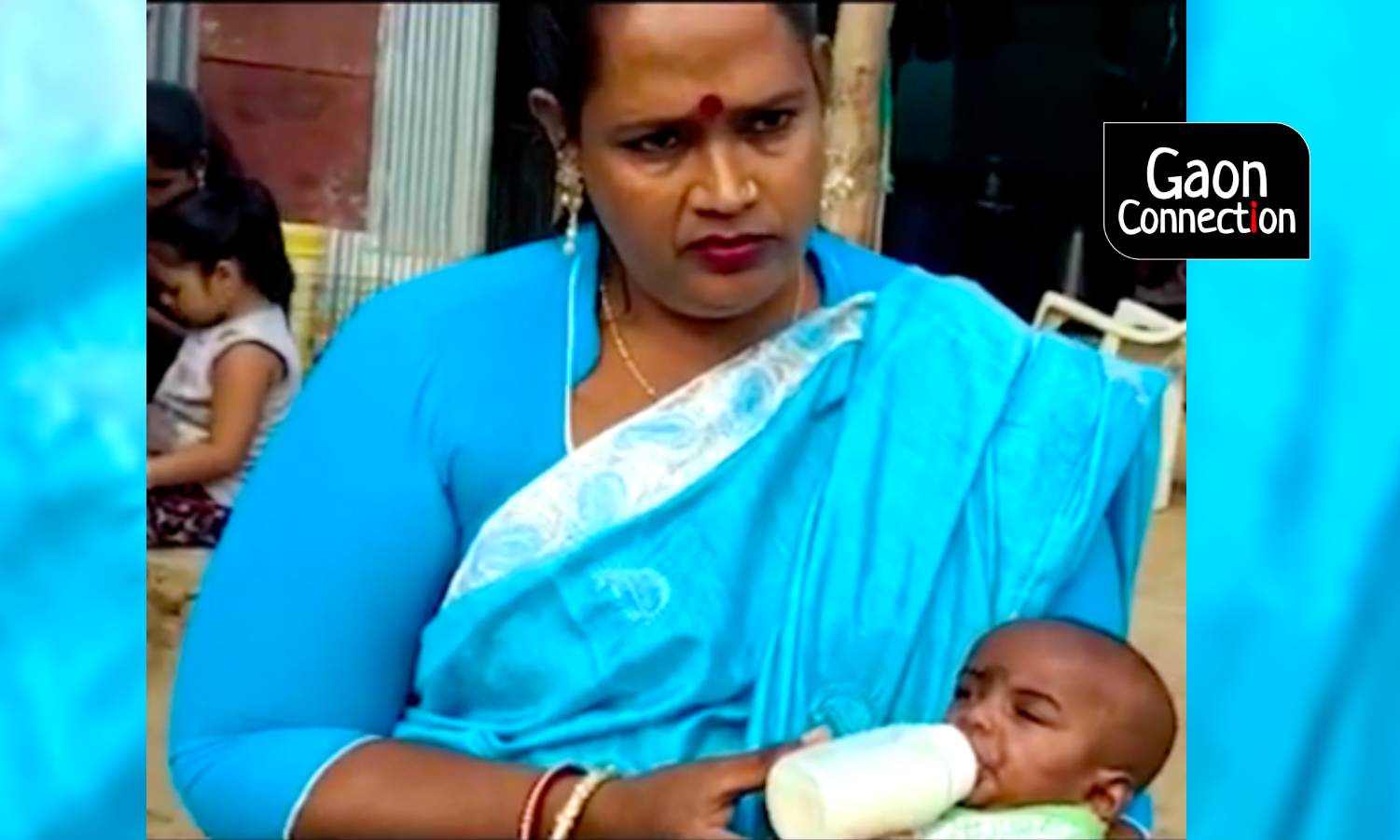Manisha came across a woman on the road, writhing in labour pain, while returning with her team from some celebrations. They took her to a hospital, but the hospital staff reluctant to let the woman deliver there. Manisha and her team took the woman home and called a private doctor for the delivery. The woman, who seemed to be from an affluent family, and educated, gave birth to a baby girl but did not want to keep her.
“So, I kept the girl with me,” said Manisha, who was abandoned at birth by her parents when they found she was born an intersex. Manisha, who lives in Chhattisgarh’s Naxal-affected Kanker district, now supports orphan children.
“When my parents came to know that their child was a kinnar (intersex person), they abandoned me. A kinnar raised me. I yearn to reunite with my family even today, but they do not.” Manisha told Gaon Connection.
Intersex persons are born with an anatomy that doesn’t match typical male-female anatomy. Most infants born with ambiguous-looking genitalia are considered intersex, and in most cases, parents, overwhelmed by shame, abandon intersex babies.
Manisha has so far adopted nine children, mostly girls. “I can understand the pain of not being loved and cared for. So, whenever I come across an orphan, I take that child home with me,” she said. Supported by her team, Manisha looks after their food, clothing, and studies.
On April 15, 2014, the Supreme Court of India recognised people’s right to self-identify as “third gender”. The landmark judgement said, “The right to equality before the law under Article 14 of the Indian Constitution applies to all persons, including transgender persons, who are thereby entitled to equal protection of the law in all spheres including employment, health care, education and civil rights.”
In April 2017, India’s first transgender police officer – K Prithika Yashini – was appointed in Tamil Nadu, and in July 2017, India got its first transgender judge – Joyita Mondal of West Bengal. Chhattisgarh government had also opened police recruitment to the intersex community from 2017 onwards.
There is no separate Census for the intersex community in India. In 2011, there were about 4,87,803 intersex people in the country based on Social Economic and Caste Census.
Nonetheless, the intersex community of about five lakh people in the country suffers social apathy at large. Most of them earn a living by dancing on auspicious occasions seeking bakshish (tips). However, most people ignore and avoid them.
“People have mixed feelings towards me,” said Manisha, talking about how people treat her. “Some people invite us to sing and dance on joyous occasion while others slamming their doors on us. Some people berate us even and ask us to work and earn,” she added. Despite facing rejection from society, people like Manisha are setting a great example in society with their philanthropy.
“I wish to open an ashram for the orphan children so that more children can get care and support. I have contacted the leaders and officials several times for the ashram,” Manisha told Gaon Connection. “Let us see when I will be finally heard. Meanwhile, I will continue to bring home any orphan I come across,” said Manisha.



















